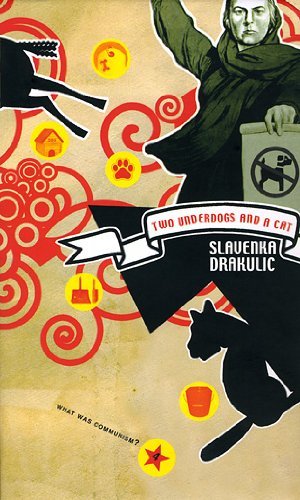Book Insider: Two Underdogs and a Cat - Three Reflections on Communism by Slavenka Drakulic



 What Was Communism? A series edited by Tariq Ali.
What Was Communism? A series edited by Tariq Ali.
This series of books explores the practice of thentieth-century Communism. Was the collapse inevitable? What actually happened in different parts of the world? And is there anything from that experience that can or should be rehabilitated? Why have so many heaven-stormers become submissive and gone over to the camp of reaction? With capitalism mired in a deep crisis, these questions become relevant once again. Marx's philosophy began to be regarded as a finely spun web of abstract and lofty arguments, but one that failed the test of experience. Perhaps, some argued, it would have been better if his followers had remained idle dreamers and refrained from political activity. The Communism system lasted 70 years and failed only once. Capitalism has existed for over half a millennium and failed regularly. Why is one collapse considered final and the other episodic? These are some of the questions explored in a variety of ways by writers from all over the globe, many living in countries that once considered themselves Communist states.
The present volume is Two underdogs and a cat by Slavenka Drakulic, a noted Croatian writer who has always and is to this day fighting the war for answers. Her work typically focuses on the domestic sphere and the individual rather that geo-political issues and traditional images of modern warfare. This is also her approach to the Communist heritage, in an apparently simple language, speaking through the voice of a dog, an underdog and a cat, whose tales unfold in Prague, Bucharest and Warsaw, reflecting on life under Communism and times that followed.
The three stories are unified by powerful, but troubling questions: Are democracy and capitalism really a change for the better? Is the idea of social justice lost forever? Is there such a thing as collective responsibility? And how do we remember and understand our past?
...“the more time I spend here, the more I realize how important the Museum is. ... “A time will soon come when kids will ask,” “Communism, what's that? A religion? Maybe a car manufacturers?” And from the things I heard him say, that's simply not right. Communism shouldn't be remembered just by the likes of the Professor, or Milena, who survived it – it should be remembered for its bad sides and its good ones. There must be something good you can say about it, although that's not a popular view to hold these days, I gather.”
Presenting us with a reason for a museum dedicated to life under Communism, where people who have lived it would not enter and people who haven't known it might enter but they might not understand, Drakulic brings us a shortly expressed, but powerful conclusion on the way the museum is organised and the way life went on in those years: “And you know what I think? Not that the opinion of someone like me counts at all, nevertheless I tell you that maybe the Museum's got it right! Maybe the absence of individual stories is the best illustration of the fact that individualism was the biggest sin one could commit."
Slavenka Drakulic
born in Croatia (former Yugoslavia) in 1949, is a writer and journalist whose books have been translated into over 20 languages. She is a frequent contributor to journals such as The New Republic, The New York Times and The New York Review of Books as well as Sddeutsche Zeitung (Germany), La Stampa (Italy), Dagens Nyheter (Sweden) and Politiken(Denmark). Author of How We Survived Communism and Even Laughed (1991), Holograms of Fear (1992), Balkan Express: Fragments from the Other Side of The War (1992), Marble Skin(1995) and Cafe Europa: LifeAfter Communism (1996), Drakulic has been awarded the 2004 Leipzig Bookfair Award. She lives in Sweden and Croatia.